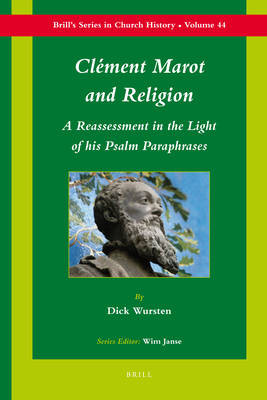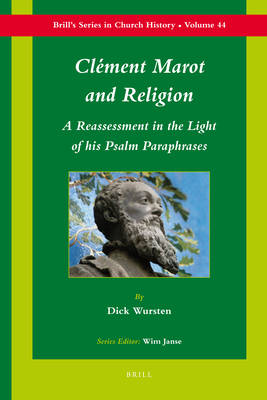
- Afhalen na 1 uur in een winkel met voorraad
- Gratis thuislevering in België vanaf € 30
- Ruim aanbod met 7 miljoen producten
- Afhalen na 1 uur in een winkel met voorraad
- Gratis thuislevering in België vanaf € 30
- Ruim aanbod met 7 miljoen producten
Zoeken
€ 305,45
+ 610 punten
Omschrijving
Famous mainly for his chansons and epigrams, the French poet Clément Marot (1496-1544) also supplied the texts for the Huguenot Psalter. Did he only paraphrase the Psalms to do Marguerite de Navarre, the leading lady of reform-oriented France, a favour, or was there more to it? This book offers a new approach to this question, which has got stuck in a yes-no discussion. A breakthrough is forced by the author's focussing on the Psalm paraphrases themselves, which until now have never actually been included in Marot research.
Analysed from a multidisciplinary perspective the successive versions of these paraphrases reveal that Marot was interested in reaching a consistent, literary, and historically reliable versification of the Psalms, thus implicitly questioning the traditional christological exegesis. The author's perusal of Jewish exegetical insights (Kimhi, Ibn Ezra) in Martin Bucer's Commentary shows where Marot acquired a satisfactory hermeneutical framework.
Analysed from a multidisciplinary perspective the successive versions of these paraphrases reveal that Marot was interested in reaching a consistent, literary, and historically reliable versification of the Psalms, thus implicitly questioning the traditional christological exegesis. The author's perusal of Jewish exegetical insights (Kimhi, Ibn Ezra) in Martin Bucer's Commentary shows where Marot acquired a satisfactory hermeneutical framework.
Specificaties
Betrokkenen
- Auteur(s):
- Uitgeverij:
Inhoud
- Aantal bladzijden:
- 450
- Taal:
- Engels
- Reeks:
- Reeksnummer:
- nr. 44
Eigenschappen
- Productcode (EAN):
- 9789004184565
- Verschijningsdatum:
- 20/05/2010
- Uitvoering:
- Hardcover
- Formaat:
- Genaaid
- Afmetingen:
- 155 mm x 235 mm
- Gewicht:
- 1839 g

Alleen bij Standaard Boekhandel
+ 610 punten op je klantenkaart van Standaard Boekhandel
Beoordelingen
We publiceren alleen reviews die voldoen aan de voorwaarden voor reviews. Bekijk onze voorwaarden voor reviews.








